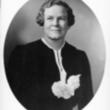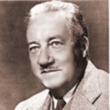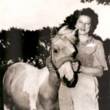The Double Life of Pocahontas
(Libby/OverDrive eAudiobook)
Available Platforms
Description
Pocahontas was the special favorite of her father, the great chief Powhatan. And when the English settlers came to Virginia, she became a ""sister"" to Captain John Smith, who was ""adopted"" into her tribe. She was permitted to move freely between the Indian and white worlds, and her life seemed perfect. But soon there was trouble. Pocahontas was kidnapped by the settlers, who forced her to live like a white woman. She yearned for her father to meet the colonists' demands so all would be well again. But before Pocahontas made peace, she would be asked to turn her back on everything she loved - and to leave her Indian world forever.
More Details
Also in this Series
Published Reviews
Publisher's Weekly Review
Fans of Fritz's lively nonfiction will be disappointed that this audio adaptation falls a bit flat. Perhaps Hughes is fettered by the historically accurate style of Fritz's prose, which is smoothly crafted but lacks dramatic dialogue. Hughes is primarily cast in the role of narrator, having little actual character work available to her to add color. Overall, her reading, though pleasant, is placid and restrained. Some listeners may draw comparisons with the experience of hearing a not particularly dynamic elementary school teacher reading a book to the class: one can follow and enjoy the tale, but the reader doesn't bring much to the story other than to act as a conduit for the author's text. Ages 9-up. (Mar.) (c) Copyright PWxyz, LLC. All rights reserved
School Library Journal Review
Gr 4-7-Jean Fritz's award-winning book (Putnam, 1983) provides an historically accurate account of the life of Pocahontas. The favored daughter of Chief Powhatan, Pocahontas finds herself torn between two worlds when the British settlers come to Jamestown and she becomes a link between the two diverse cultures. In a move engineered to save the life of Captain John Smith, Pocahontas performs a ritual that marks Smith as her kinsman-a relationship she honors with devotion but that he does not truly understand. Her father's appetite for weapons and the British need for food and desire for wealth led to multiple conflicts in which the princess was used as a pawn by both sides. Pocahontas left no written record of her experiences, and much of the information presented in the book has been gleaned from Smith's journals. While there is very little dialogue, narrator Melissa Hughes does an excellent job of varying her voice to express emotion and hold listeners' interest. This well-written account of Pocahontas's life will educate youngsters.-Deanna Romriell, Salt Lake City Public Library, UT (c) Copyright 2010. Library Journals LLC, a wholly owned subsidiary of Media Source, Inc. No redistribution permitted.
Kirkus Book Review
What, one might wonder, does Fritz see in the hackneyed subject of Pocahontas? As the title suggests (and the text handles delicately): a young girl who believed herself bound to John Smith by Powhatan's adoption of him, and so also felt herself part of his Jamestown world. There is conjecture here, but Fritz faces it squarely--citing Pocahontas' young age (probably eleven) when she acted as his ""sponsor,"" noting that Smith would have had every reason to humor her. Slipping back and forth from Pocahontas' and Powhatan's perspective to Smith's, and portraying Powhatan as Smith's equal in guile, Fritz also suggests that Pocahontas' intervention might have been prearranged: an intriguing thought. Much later, after John Smith's departure, when the English are killing wantonly and Powhatan is beleaguered, Pocahontas is captured and Powhatan replies to ransom demands with a pretext she scorns no less than the English. ""Seven broken muskets! Was that all she was worth? She knew her father loved his guns, but did he love them more than he did her?"" And then, ringing in the charming, plaintive phrase Pocahontas learned as a girl from the English, Fritz has her lament: ""Did he mean to let her stay here forever, always walking with small steps, speaking the sharp English speech like twigs snapping. Love you not me? Love you not me?"" So she gives in, accepts Christianity, and marries John Rolfe--who had ""decided it was God's will."" (In parentheses: ""He had already found out that it was Pocahontas' will too."") Buoyant and affecting. Copyright ©Kirkus Reviews, used with permission.
Reviews from GoodReads
Citations
Fritz, J., & Hughes, M. (2011). The Double Life of Pocahontas (Unabridged). Blackstone Publishing.
Chicago / Turabian - Author Date Citation, 17th Edition (style guide)Fritz, Jean and Melissa Hughes. 2011. The Double Life of Pocahontas. Blackstone Publishing.
Chicago / Turabian - Humanities (Notes and Bibliography) Citation, 17th Edition (style guide)Fritz, Jean and Melissa Hughes. The Double Life of Pocahontas Blackstone Publishing, 2011.
Harvard Citation (style guide)Fritz, J. and Hughes, M. (2011). The double life of pocahontas. Unabridged Blackstone Publishing.
MLA Citation, 9th Edition (style guide)Fritz, Jean, and Melissa Hughes. The Double Life of Pocahontas Unabridged, Blackstone Publishing, 2011.
Copy Details
| Collection | Owned | Available | Number of Holds |
|---|---|---|---|
| Libby | 1 | 1 | 0 |





























